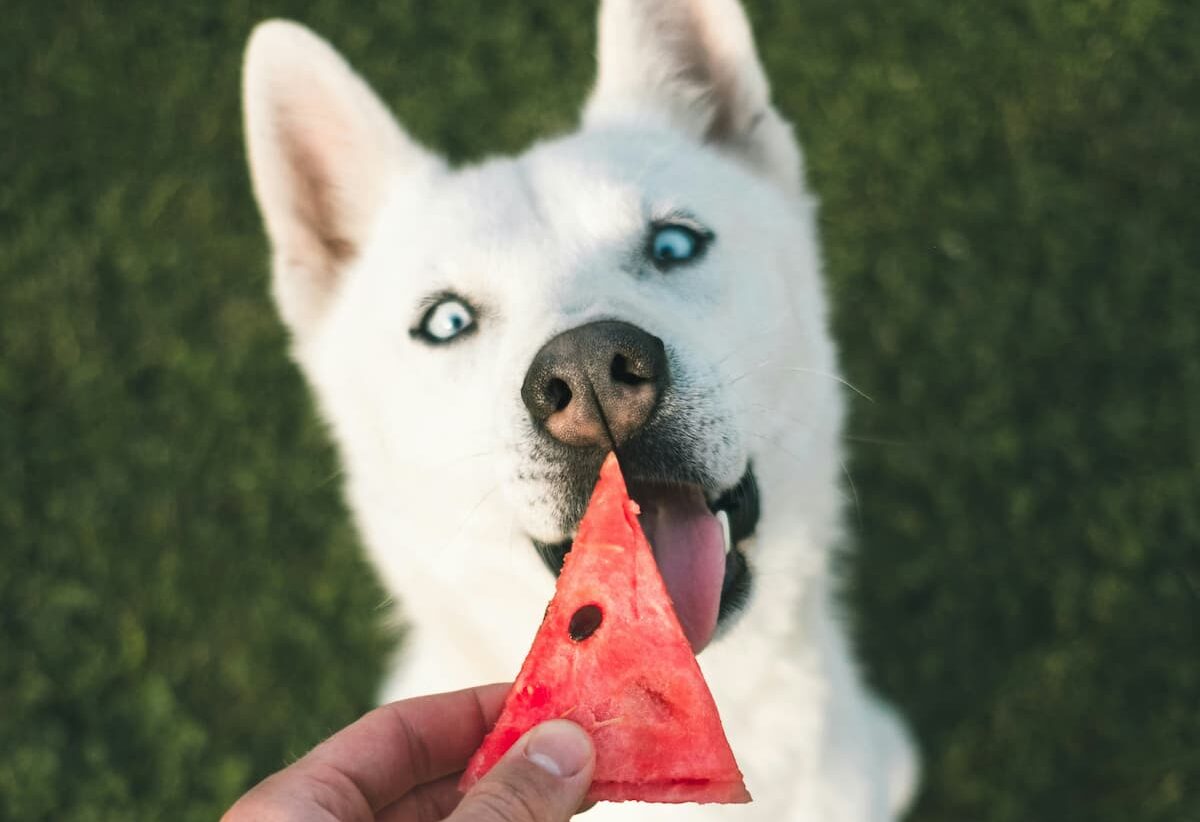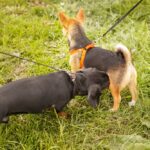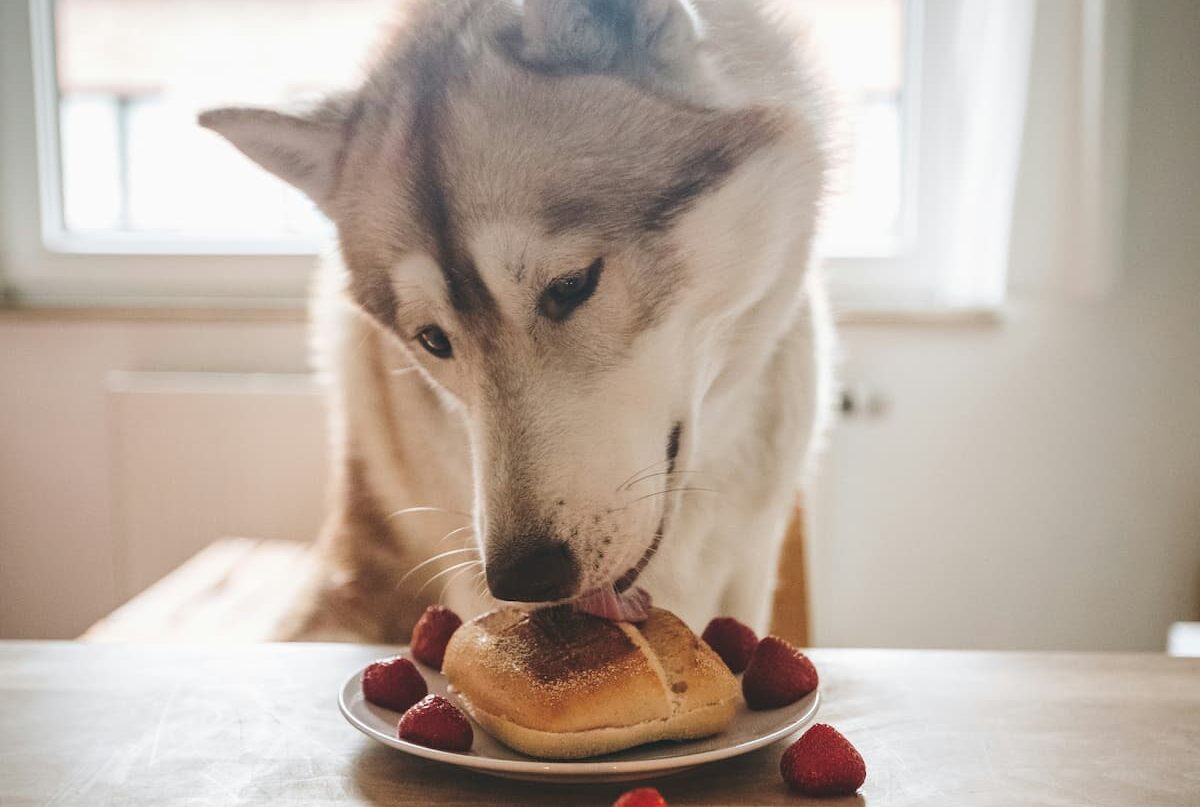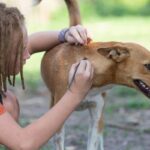Have you ever wondered why our loyal companions, dogs, have an uncanny ability to eat just about anything that crosses their path?
Picture this: you’re out for a leisurely stroll with your furry friend, and before you know it, they’re gleefully chomping down on a random sock they found on the sidewalk.
It’s baffling, isn’t it?
This article will answer the question: Why Do Dogs Eat Anything?
Understanding the Urge to Eat Inedible Objects
Dogs can be notorious for their indiscriminate eating habits, sometimes leaving us puzzled and wondering, ”Why do dogs eat anything?”
This peculiar behavior, known as pica, is when dogs consume inedible objects such as rocks, socks, or even plastic toys.
While this might seem strange or even amusing to us, pica can actually be a cause for concern as it can pose serious health risks to our furry friends.
So, what drives dogs to eat things that are not meant for consumption?
There are several possible reasons behind this behavior:
Curiosity: Dogs are naturally curious creatures and use their mouths to explore the world.
Puppies, in particular, go through a teething phase where chewing helps soothe their gums.
This innate curiosity, combined with a desire for oral stimulation, can lead them to chew on things that catch their attention.
Scavenging behavior: Dogs are natural scavengers whose ancestors used to hunt for food in the wild, and this instinct to scavenge for sustenance is ingrained in their DNA.
Dogs have an incredible sense of smell, and they’re constantly on the lookout for anything that might be edible.
So, when they stumble upon a discarded piece of food or a fascinating object, their instinct is to investigate and potentially consume it.
Boredom or anxiety: Dogs are social animals that thrive on mental and physical stimulation.
When they lack proper exercise or mental enrichment, they can become bored or anxious.
In an attempt to alleviate their boredom or anxiety, they may resort to chewing on objects that are readily available to them.
Chewing releases endorphins in a dog’s brain, causing a calming and satisfying effect.
It’s like their version of stress relief!
Nutritional deficiencies: Sometimes, pica can be a sign of underlying nutritional deficiencies.
Dogs may seek out non-food items in an attempt to fulfill their dietary needs.
If their diet lacks certain essential nutrients, they may resort to eating substances that are not suitable for consumption.
Risks and Health Concerns of Ingesting Foreign Objects
While it may seem like a mere quirk or an entertaining trait, the truth is that this behavior can pose serious risks and health concerns for our beloved furry friends.
Ingesting foreign objects can lead to a range of issues, from mild discomfort to life-threatening emergencies.
Sharp objects, such as shards of glass or plastic, can cause internal injuries and severe bleeding.
Similarly, small objects like coins or small toys can get lodged in the digestive system, leading to blockages that require surgery to remove.
Additionally, the ingestion of toxic substances or chemicals can poison a dog’s system, causing organ damage or failure.
Tips to Minimize Inappropriate Eating Habits in Dogs
To minimize these inappropriate eating habits in dogs, there are several tips you can follow:
1. Practice strict supervision: Keep a close eye on your dog, especially when they are outdoors or in unfamiliar environments.
By doing so, you can intervene before they have the chance to snatch up something they shouldn’t be eating.
2. Ensure a balanced diet: Make sure your dog’s regular meals meet all their nutritional needs.
Dogs that are adequately nourished are less likely to seek out inappropriate foods.
Consult with your veterinarian to determine the best diet for your furry friend.
3. Teach the “leave it” command: This simple yet valuable command can help redirect your dog’s attention away from potential food hazards.
By teaching them to “leave it,” you can prevent them from ingesting something that could be harmful.
Remember, while it may be amusing to witness your dog gobble up a random object, it’s essential to take appropriate measures to protect their health and well-being.
By understanding the reasons behind their indiscriminate eating habits and implementing these tips, you can help minimize the risks associated with their scavenging tendencies.
FAQ
Q: Is it normal for dogs to eat anything they find?
A: Absolutely!
It’s perfectly normal for dogs to have a natural curiosity that often leads them to investigate and sometimes even munch on random objects.
It’s like they’re on a mission to explore the world through their taste buds.
Q: But what drives them to devour things like socks, shoes, or even garbage?
A: Great question!
One simple answer: their instinctual scavenging tendencies.
Dogs, by nature, are opportunistic eaters.
Back in their wild days, their ancestors would scavenge for any available food to survive.
While our domesticated pals have evolved from those days, their instinct to explore and nibble on objects remains strong.
Q: So, it’s all about survival then?
A: In a way, yes!
Dogs have an incredible sense of smell that allows them to detect scents we can’t even fathom.
If an object smells remotely food-like to them, their curiosity kicks in, and they might decide to sample it.
However, it’s important to differentiate between normal, harmless exploration and potentially dangerous habits, as some objects can be harmful if ingested.
Q: Why does my dog eat things even when they have a full belly?
A: Ah, the mystery deepens!
Even when your furry pal’s tummy is as full as can be, they may still be drawn to nibble on unusual items.
There could be various reasons: boredom, anxiety, or even seeking attention.
Dogs, especially ones with high energy levels or those left alone for long periods, can resort to chewing on objects as a form of entertainment or stress relief.
Q: How can I prevent my dog from eating everything in sight?
A: Prevention is key!
First and foremost, ensure your dog has a balanced and nutritious diet, so they’re less likely to scavenge out of hunger.
Secondly, keep tempting objects out of reach.
Sometimes it’s simply a matter of dog-proofing your home by minimizing access to shoes, clothes, and other objects that might catch their interest.
And, of course, providing ample physical and mental stimulation for your pooch is vital to keep their curiosity at bay.
Q: Is there any cause for concern if my dog eats something they shouldn’t?
A: Absolutely!
Ingesting certain objects, like toxic substances, sharp items, or objects that can obstruct the digestive tract, can pose serious health risks for our furry companions.
If you suspect your dog has eaten something hazardous or unusual, it’s always best to contact your veterinarian immediately for guidance.
Q: So, in a nutshell, dogs eat anything because of their natural scavenging instincts?
A: Precisely!
It’s a mix of their evolutionary background, curiosity-driven behavior, and maybe a touch of mischievousness.
The key is to understand their instincts, provide a safe environment, and train them to differentiate between appropriate and inappropriate objects.
Remember, our furry companions bring us joy even when they chow down on our favorite slippers!
Wrapping Up the Discussion
Next time you catch your dog gobbling up some seemingly bizarre item, like a sock or a random twig, take a moment to appreciate the fascinating insights we’ve discovered today.
Remember, they aren’t just mischievous rascals – they’re products of their ancestors’ survival tactics and their own innate curiosity.
So, let’s give our four-legged pals a little understanding and maybe even some extra caution in keeping hazardous objects out of their reach.
After all, they’re just being true to their nature, and that’s something to be admired.












